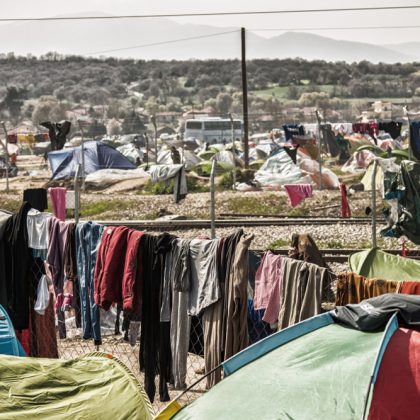Earned Citizenship: Migrants’ Views on the Welfare State
With free labour migration between countries within the EU, the topic of the welfare state is again high on the political agenda, especially in countries as the UK, but also in The Netherlands. Also academic debates take place on the tensions between welfare states and immigration. Economists tend to worry about the financial consequences of immigration for welfare states. “It’s obvious that you can’t have free immigration and a welfare state,’ Nobel Laureate Friedman once said, a sentence since found in every textbook about migration and the welfare state. The economist Borjas coined the term ‘welfare magnet’: generous welfare provision would attract more immigrants who are more likely to use such provisions. Sociologists worry that ethnic diversity would erode solidarity, as people would not identify enough with each other. When ‘strangers’ enter the welfare state, the financial and social foundations of solidarity are said to crumble.
A prominent question in many European welfare states is whether immigrants should have the same rights as the autochthonous population. Many polls and surveys ask the opinions of the latter category. Migrants are hardly ever asked about their view of the welfare state. What do migrants themselves think about the welfare state? How does their ideal welfare state look like and should immigrants have the same rights as those who were born in the country? And what should be the basis of rights? With the use of qualitative focus group research, we asked what different types of labour migrants themselves think about the Dutch welfare state in general, and about giving social rights to immigrants, in particular.
In contrast to economic and welfare state theories the lower-educated Turkish and Polish labour migrants questioned have little interest in the Dutch welfare state. They don’t believe the welfare state is there also for them. Because of their weak employment situations, often based on flexible work-arrangements, they say they prefer a permanent full-time employment contract, rather than receiving social security. ‘The Dutch are good for me, in giving me benefits, but I’d rather have a permanent employment contract’ a Polish migrant said. By contrast, higher-educated Western European immigrants find a generous welfare state very attractive. ‘It’s a great idea’. Some immigrants even said the Dutch welfare state was a reason for staying. If Borjas’ welfare magnet theory applies at all, then it may be more applicable to higher-educated Western European migrants. What they particularly value is the feeling of security that the welfare state gives them, it gives them ‘peace of mind’. The Western European migrants have become ‘socialised’ in the welfare state.
Higher-educated Indian migrants find the welfare state a totally new concept, social security is new to them. They repeatedly say: ‘We are brought up with the idea that nobody will care for us – we take care of ourselves – and of course of our family’. Indian migrants think the welfare state gives people ‘too much peace of mind’ and prefer a more basic welfare state. Yet, after some time, they eventually enjoy the fact it reduces inequality. After living in The Netherlands for a while, some come to appreciate it. A closer look at what could be labelled a ‘two-way institutional approach’, exploring welfare states of departure and of arrival together, may help to understand attitudes of people and processes of socialisation within welfare states.
A significant proportion of the questioned migrants, also believe that people should not be entitled to welfare state rights immediately upon arrival. This, in fact, is similar to what many autochthones in the Netherlands argue, according to survey research by Reeksens & Van Oorschot. Many labour migrants questioned favour ‘earned citizenship’, with the welfare state being a ‘contribution state’. ‘Just living here is not enough, you must have contributed’, a labour migrant expressed what many others emphasised. Working and paying taxes is the most mentioned ways to contribute to society. Different from what many autochthones argue, labour migrants reject the idea that nationality matters for receiving social rights. Working and paying taxes should fulfil eligibility criteria. Migrants, however, also emphasise that migrants should not have to wait too long before being entitled to such rights. In the Netherlands, it takes 50 years of living in the country before full universal pension is granted. Nobody wants to become an ‘eternal migrant’.
The view of migrants towards social rights calls into question the pejorative term ‘welfare chauvinism’, which has become popular in welfare state research, and refers to people who are in favour of the welfare state but only for themselves. If not only autochtones, but immigrants too, stress that rights should not be given immediately to those born outside a country, this may not simply be a matter of ‘chauvinism’ but of ‘welfare selectivism’.
Migrants’ views on the welfare state show that it is not that obvious you can’t have free migration and a welfare state, as Friedman stipulates. And the welfare magnet thesis – if true- may only apply to an unexpected category: the higher educated Western European migrants that have become used to a safety net. Solidarity may be ‘saved’ by rethinking the welfare state and discuss the allocation of rights and duties. According to labour migrants themselves, it is more fruitful to discuss how immigrants can ‘earn citizenship’ and the timeframe for doing so. How can social rights be based more on contributions while making sure people would not become ‘migrants’ or ‘second class citizenship’ for ever. That is the key question.
This post is in relation to the new article from the Journal of Social Policy: ‘Earned Citizenship: Labour Migrants’ Views on the Welfare State’ by Monique Kremer which you can read free of charge until 30th September 2016 here:
http://journals.cambridge.org/abstract_S0047279416000088






